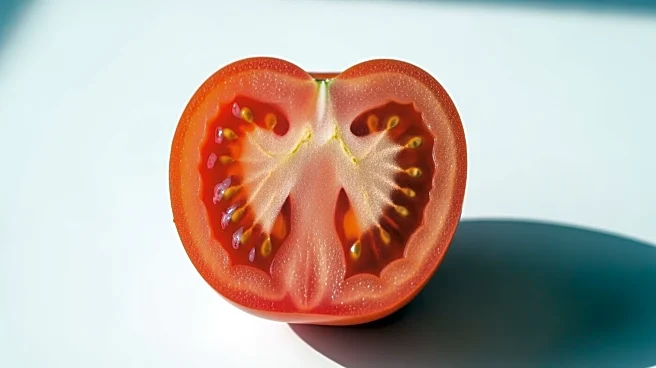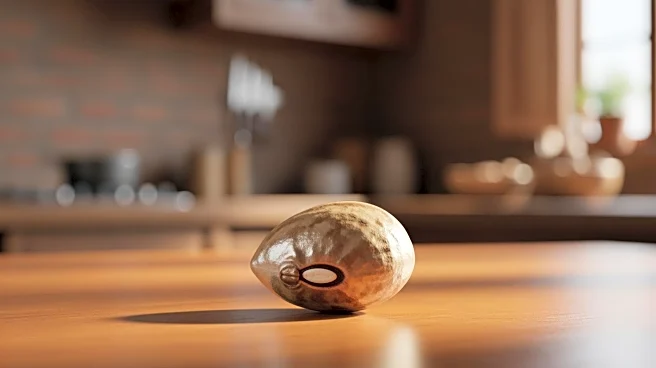What's Happening?
A junior research group at Heinrich Heine University Düsseldorf (HHU) is embarking on a five-year project to develop eco-friendly pesticides using bacteria. The initiative, led by Dr. St. Elmo Wilken,
focuses on the Dalmatian chrysanthemum, a plant known for producing natural biopesticides called pyrethrins. These compounds have been used since the 17th century due to their low toxicity to mammals, rapid environmental decomposition, and effectiveness against insect pests. Despite these benefits, synthetic pesticides are often preferred due to cost-effectiveness. The project, funded with approximately €2.7 million by the Federal Ministry of Research, Technology and Space, aims to create a scalable, semi-synthetic bioprocess for pyrethrin production using Vibrio natriegens bacteria. The research seeks to distribute the biosynthetic pathway across a bacterial community to enhance efficiency and economic viability.
Why It's Important?
The development of sustainable pesticides is crucial as the global population is projected to reach nine billion by 2050, increasing the demand for food production. Current synthetic pesticides pose environmental risks, including harm to beneficial insects and bioaccumulation in the food chain. The HHU project addresses these concerns by offering a potentially safer alternative that aligns with the EU's 'Farm to Fork' strategy, which aims to make food systems healthier and more sustainable. Success in this research could reduce ecological damage and provide bioengineers with new tools for creating economically viable bioprocesses, ultimately contributing to global food security.
What's Next?
The PyreComm research group at HHU will continue to refine their bioprocess for pyrethrin production, with the goal of achieving regulatory approval under the EU's 'Farm to Fork' strategy. The project will focus on maximizing the efficiency of bacterial communities in bioreactors, using wood-based feedstock to close the loop between agriculture and biopesticide production. If successful, this approach could lead to widespread adoption of eco-friendly pesticides, reducing reliance on synthetic alternatives and mitigating their environmental impact.
Beyond the Headlines
The shift towards sustainable pesticides could have broader implications for agricultural practices and environmental policies. By reducing the ecological footprint of pesticide use, this research supports global efforts to combat climate change and preserve biodiversity. Additionally, the project highlights the potential of biotechnology in addressing complex environmental challenges, paving the way for future innovations in sustainable agriculture.








